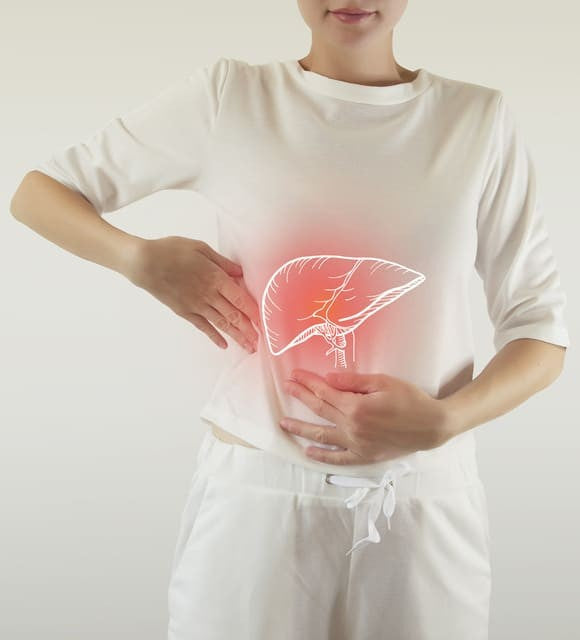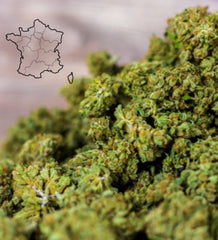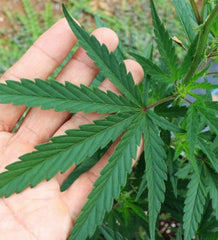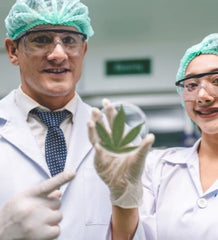
What role does CBD play in liver disease?
The use of CBD in the treatment of fatty liver disease
In recent years, there have been several reports regarding marijuana use. In fact, all these reports suggest that the vast majority of marijuana users do not suffer from diabetes, obesity, or metabolic syndrome (these are key factors that contribute to the onset of fatty liver disease).
This observation becomes increasingly interesting when some researchers begin to compare the diets of cannabis users with those who do not.
This diet adopted by cannabis users has a lower incidence of metabolic diseases. Therefore, researchers concluded that CBD oil and marijuana would be ideal ways to prevent or treat fatty liver disease .
Based on this idea, numerous studies have been conducted on the beneficial effects of CBD on the liver. All of these studies have led to the same conclusion: the chances of developing fatty liver disease remain lower in active CBD users.
To gain a clear understanding of how cannabis works in the body, it's important to consider the role of the endocannabinoid system in the liver. This means that the system plays a key role in combating the development of fatty liver disease.
The endocannabinoid system and fatty liver disease
First of all, it's important to note that the endocannabinoid system is present in all mammals without exception. It's a receptor system that regulates a number of human homeostatic control mechanisms. This system regulates appetite, mood, and even sleep.
It only has two main receptors: CB1 and CB2. Simply put, the endocannabinoid system controls and balances various organs in the body.
According to research conducted by experts, it should be noted that in case of malfunction of the body's organs, local endocannabinoid activity attempts to repair or restore these organs to normal levels.
In a healthy liver , the endocannabinoid system is highly active for this organ in particular. Indeed, when the liver is inflamed or damaged, the endocannabinoid system automatically activates and activates for rapid repair. More precisely, it works to restore it to a normal state.
Additionally, with the intervention of CBD, the activity becomes increasingly intense. Being an agonist-antagonist of CB1 and CB2 receptors, CBD is responsible for blocking as much as possible the compounds that disrupt the endocannabinoid receptors in the liver.
Likewise, it limits the endocannabinoid system by establishing a perfect balance within the system itself. This is so that it does not function in excess. This means that cannabis is an equalizer of the system that balances the human body.
In doing so, CBD effectively protects the body from several diseases, including fatty liver disease. It also allows the body to better resist and be much more effective in healing this disease.
Furthermore, it is important to note that CBD not only prevents fatty liver disease. It also significantly inhibits the development of this condition and allows the body time to adapt to its lifestyle.

How to use CBD oil to ensure the prevention and alleviation of fatty liver disease?
Well known for its multiple therapeutic benefits, CBD (more specifically, full-spectrum CBD oil ) can be used to alleviate and prevent fatty liver disease. Its anti-inflammatory and analgesic properties provide significant relief to those affected by this condition.
There are several other compounds that make up the cannabis plant. These include flavonoids and terpenes. These compounds will provide crucial assistance in the absorption and effective use of CBD.
Based on the concept called the "entourage effect," it's important to remember that the entire cannabis plant is considered the strongest of any single chemical. In plain language, each of the compounds in cannabis works together to generate its effects.
The one thing you should definitely avoid is THC (tetrahydrocannabinol). This is a component of cannabis that promotes fatty liver disease. This is because THC is a CB1 receptor agonist.
It directly opposes the benefits of CBD . This is why it is of paramount importance to buy CBD from a CBD shop that complies with government-regulated standards regarding THC.
Failure to comply with these guidelines can worsen the condition of active fatty liver disease. The recommendation primarily focuses on the consumption of CBD from full-spectrum chamber extracts.
Note that CBD infusions can also be an excellent solution for supporting liver health.
What is the dosage of CBD oil for fatty liver disease?
First of all, it is important to clarify that the dosage of CBD for fatty liver disease is the same as for other conditions. Since cannabinoids affect each person differently, it is strongly recommended to always start with a low dose , specifically 1 mg per day. You can gradually increase from this base dose.
Please note that every individual is different, and the dose that will work best for you may not be the same as your friend's or partner's. The ideal dose for you depends on many factors such as your metabolism, sensitivity, age, CBD habituation, and more.
If you notice that you experience side effects such as drowsiness, loss of appetite or nausea, it is recommended to gradually reduce the dosage until you reach the last dose that causes no side effects.
What are the other properties of CBD on the liver?
Aside from supporting treatment for fatty liver disease, CBD can also help combat depression and anxiety . It also has some therapeutic properties, such as anti-inflammatory. CBD is well known for its relaxing, anti-stress, and pain-relieving properties .
When it comes to the liver, it's worth noting that CBD's beneficial effects aren't limited to fatty liver disease. CBD can help relieve several liver disorders . Its therapeutic properties also benefit other organs.
Fibrosis
Fibrosis is a hereditary metabolic disease that manifests itself through breathing difficulties, osteoporosis, digestive disorders, and growth problems. Unfortunately, there is no cure to eradicate this pathology, but there are solutions to slow its progression, and CBD is one of them. Here again, it is thanks to its action on the endocannabinoid system that CBD is able to slow the proliferation of diseased cells.
Alcohol withdrawal
As you know, alcoholics generally have unhealthy livers. The good news is that CBD helps repair the damage by improving liver health after excessive alcohol consumption. Additionally, CBD makes it easier to quit drinking alcohol. CBD is ideal for gently and naturally weaning yourself off alcohol and THC addictions.
What are the contraindications of CBD?
CBD appears to be extremely beneficial for the liver, but can it be dangerous? In reality, there are no risks if you follow the recommended doses. To date, there are no contraindications for CBD consumption.
If in doubt, and for vulnerable people such as seniors, children, pregnant and breastfeeding women, we advise you to seek the advice of a health professional before consuming CBD, especially if you suspect a liver problem.
As a reminder, CBD can help you, relieve you and support you in reducing your symptoms , but it cannot replace drug treatment in the event of a diagnosed pathology.
In conclusion, is CBD beneficial or dangerous for the liver?
When used properly, CBD is beneficial for the liver and the entire body. Thanks to its regulatory action on the endocannabinoid system, it helps you reduce pain and face illness with greater serenity.
By choosing premium CBD-oils or herbal teas, you can rest assured that there's no risk to your health. Instead, you'll enjoy the benefits of hemp!





